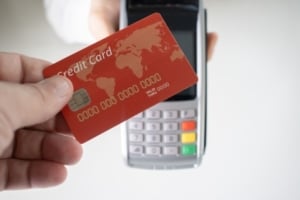Bankruptcies leave people with bad credit. While improving your credit score and establishing credit to a potential lender might be challenging, it is not impossible. Even if you have a low credit score, there are certain things you can still do. This includes applying for a credit card after bankruptcy. While there are certain limitations on the credit cards you may apply for, it’s better than totally not being able to get one given your credit rating.
You may proceed with a card application while dealing with your debts and during bankruptcy filing, but it would be especially difficult to get credit from card companies. Although applicable to any credit card application, if you are currently filing for bankruptcy, companies will be extra skeptical as they check your credit profile. Afterward, however, there is a way to rebuild your credit after bankruptcy (and eventually be approved by credit card companies).
The best credit card application for your case depends on the bankruptcy type you filed.
If you file a Chapter 7, your bankruptcy trustee will liquidate your non-exempt assets and use the proceeds to pay off those tagged as preferred creditors. In most Chapter 7 bankruptcies, debts that you do not have to pay back are discharged four to six months after filing. Your Chapter 7 filing will be seen by any financial institution that will check your credit report in the next ten years.
In contrast, if you file a Chapter 13, you have to repay creditors that you borrowed (or were borrowing) from before bankruptcy. Whatever you owe, you pay it through the repayment plan that you proposed. It could be composed of certain one-time or monthly payments, depending on what the court will approve. The repayment plan is usually for three or five years, depending on your monthly income and other factors. A Chapter 13 filing will be revealed in a credit-check for seven years.
 After you have declared bankruptcy, it would be hard to improve your credit score anytime soon. That is a given. It will take some time before you can build credit, borrow with low-interest rates, or get new credit from other institutions. However, you might be able to get a credit card sooner than you expect. Some people with histories of bankruptcy do not need to apply for a credit card anymore. They are surprised by a credit card offer sent in the mail.
After you have declared bankruptcy, it would be hard to improve your credit score anytime soon. That is a given. It will take some time before you can build credit, borrow with low-interest rates, or get new credit from other institutions. However, you might be able to get a credit card sooner than you expect. Some people with histories of bankruptcy do not need to apply for a credit card anymore. They are surprised by a credit card offer sent in the mail.
While a credit card company would normally not want a borrower with bad credit history, some are banking on the fact that an individual cannot file another bankruptcy case for a couple of years. An individual getting a credit card after filing could be a good financial risk.
If you compare credit cards offered to people with good credit and bankrupt individuals, the latter usually come with exceptionally higher interest rates. Aside from interest rates, there could be other things that you should be wary of.
When you do decide to get a card given your credit history and while still rebuilding credit, choose wisely. Opt for one with low interest and with no annual fee or any unnecessary transaction fee. Don’t leave your credit card balance unpaid and take care of your payment history. Pay your bills on time and spend responsibly to avoid suffering from high-interest rates.
Another option is to get a secured credit card. It is similar to a regular credit card and offers the same benefit of building credit. The only difference is that your credit limit is dependent on the deposit you have maintained with the card issuer.
For questions on your bankruptcy filing and rebuilding credit after bankruptcy, call our Pasadena Bankruptcy Law firm. Contact us at Law Office of Daniela Romero .
